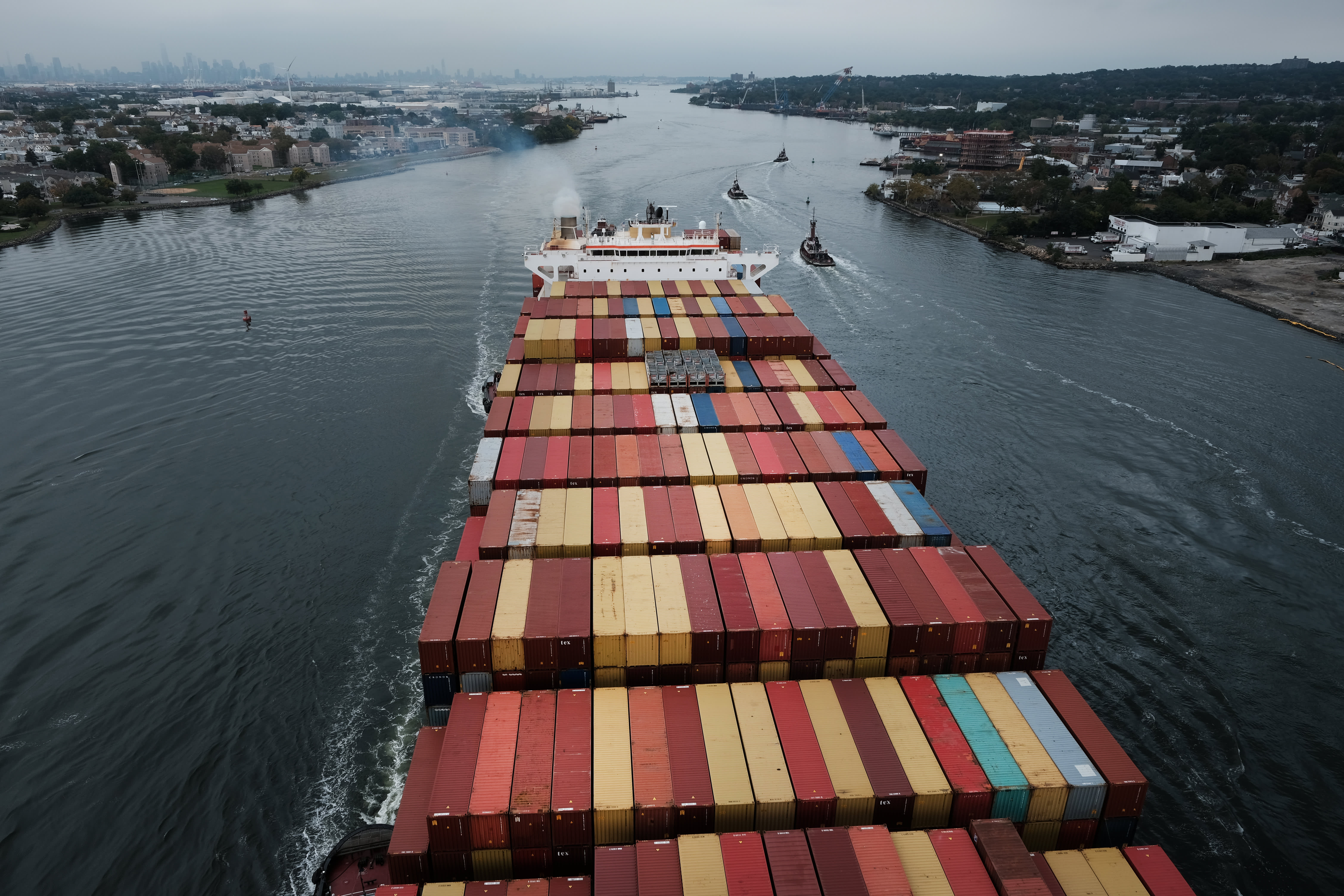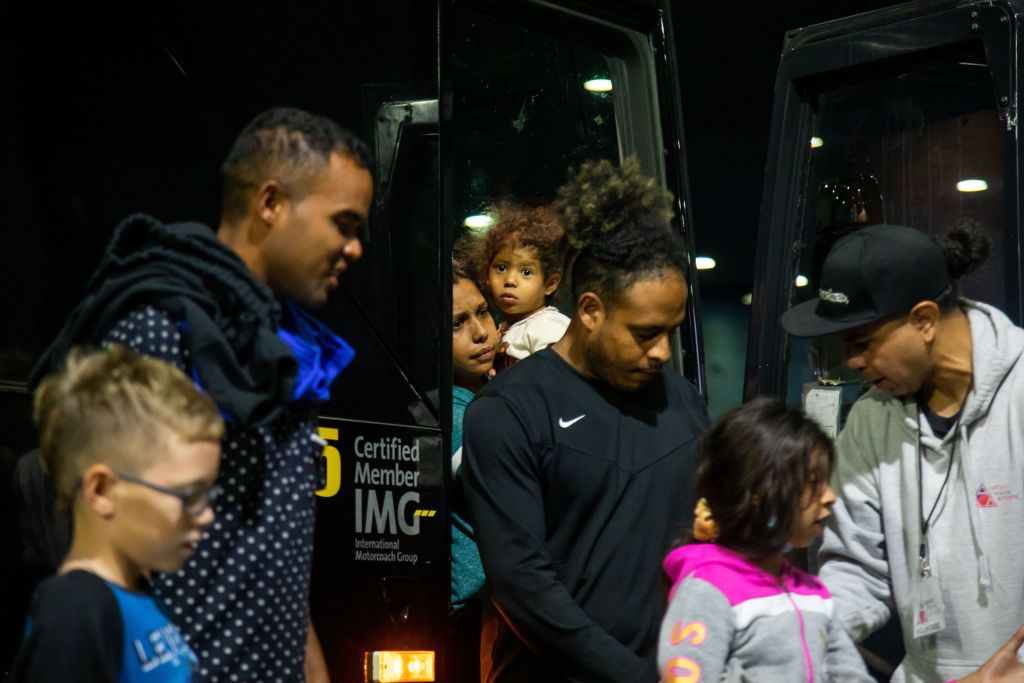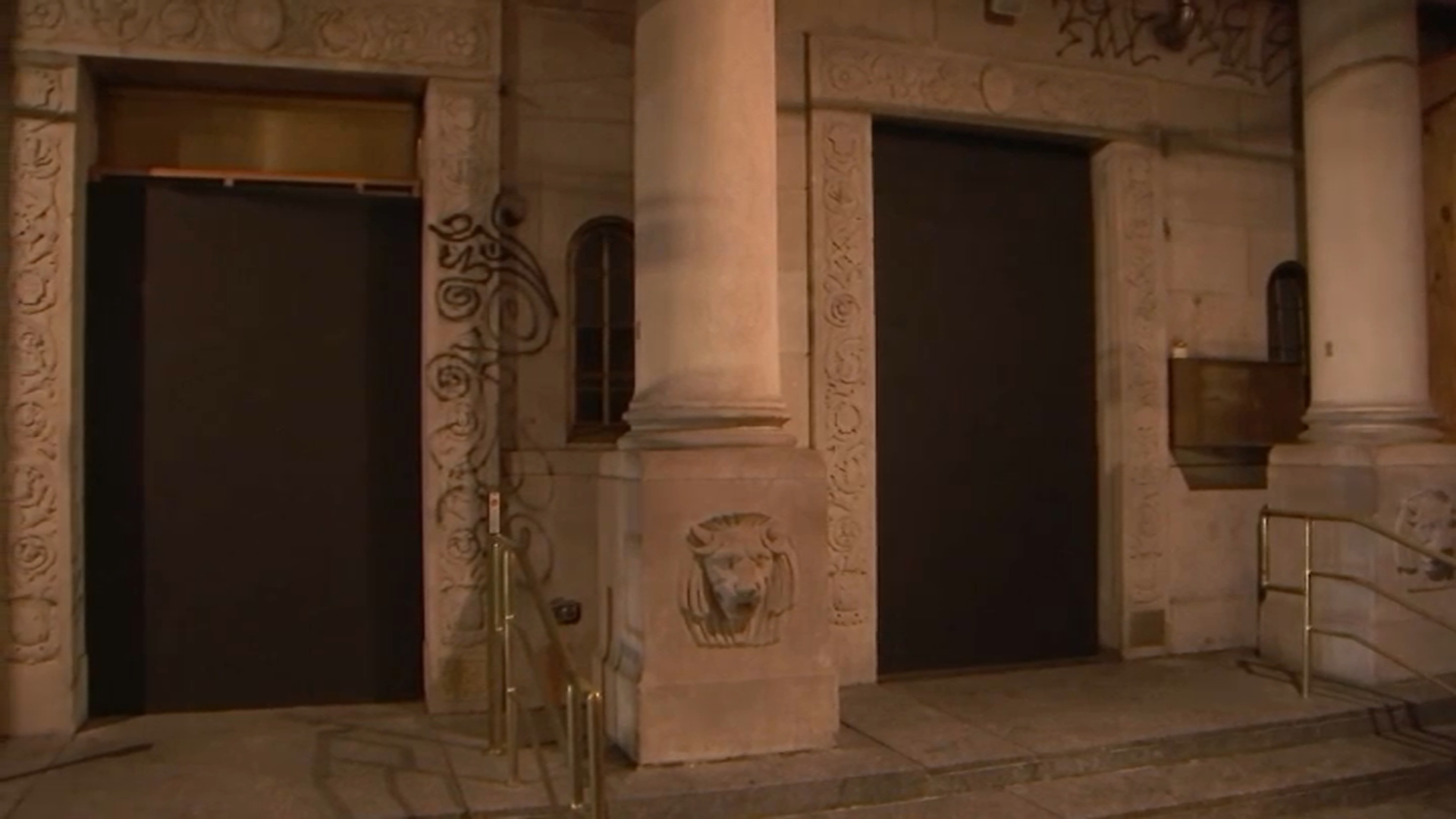City officials said they are doubling the milk supply at some homeless shelters, one week after News 4 reported that children of asylum seekers were going hungry in their emergency hotels.
The change, announced Friday in a prepared statement from the City's Department of Social Services, comes after City Council Speaker Adrienne Adams, City Comptroller Brad Lander and the Legal Aid Society raised concerns about the shortages described in News 4's reporting.
"As we've said before, we take any concerns of food shortages at shelter sites very seriously, and are committed to investigating any such concerns," said a spokeswoman for the City Department of Social Services.
"Out of an abundance of caution we continue to proactively conduct comprehensive surveys across shelters sites to make doubly sure that sites know how to access additional food if it's needed to meet demand. Furthermore, we have also added to the required provisions for milk, in some cases doubling the supply at certain sites."
Get Tri-state area news and weather forecasts to your inbox. Sign up for NBC New York newsletters.
In interviews with families at several shelters, Venezuelan migrants told News 4 they were desperate because their hotels were not distributing formula and baby food and their infants and toothless toddlers were too young to eat the sandwiches provided. Families also said the supply of milk was too restricted.
One mother cried while asking in Spanish, "How am I supposed to tell my children I don't have food for them?"
At the Travelodge in South Ozone Park, asylum seekers said they were being forced sign for each milk or juice consumed, that milk was limited to one 8-ounce container per child per day and that requests for seconds were denied.
At food pantries throughout the city, workers describe an urgent need, with scores of families lining up asking for formula, powdered milk or other foods their young children might tolerate.
"When we give them the milk and they drink it in front of us, the face changes," said Maria Vergara, a volunteer at a West Side pantry who interacts with dozens of migrant families a day.
"This is an emergency. These kids are getting hungrier. We need formula. We need diapers," said Pedro Rodriguez of La Jornada, which runs 19 food pantries in Queens and had a city contracts to provide emergency meals during the pandemic.
Because the asylum seekers are ineligible for most forms of public assistance and forced to wait several months after filing their asylum claims before they can apply for work permits, they are unable to purchase food.
At a news conference five days after the I-Team first alerted city officials about the alleged food shortage, News 4 asked Mayor Eric Adams what he was doing to address the situation. Adams said he "had not heard those reports," but when pressed, said he would ask his Department of Social Services for more information.
Adams declared a state of emergency in the city on Friday, estimating the migrant influx will cost the city more than $1 billion and emphasizing the unprecedented, record breaking strain it is putting on the homeless shelter system.
Adams pushed back against reports that have found fault with what he considers the city's heroic response. He has claimed that critics and journalists are playing a game of "gotcha" in the midst of a massive crisis.
Several shelter providers have declined to speak on the record because they have contracts with the City, but some describe the food situation as a perfect storm: A flood of migrants, an insufficient food budget and rising food prices.
Deputy Council Speaker Diana Ayala told News 4 local lawmakers are planning a hearing to evaluate resources and supplies at shelters. At the last City Council hearing on the City's response to asylum seekers, Social Services Commissioner Gary Jenkins did not attend.
Jenkins was also not present during Friday's declaration of emergency by the mayor. When asked why he was not in attendance, Adams said Jenkins was dealing with a family emergency.
The NYC Department of Social Services has avoided acknowledging any food shortages, offering several vague statements in response to specific questions about the shelters' food budget, formula supplies and whether city officials are actually investigating allegations of a food shortage. NYC Comptroller Brad Lander said Tuesday he was alarmed after being told by City Hall that there was no investigation underway.




